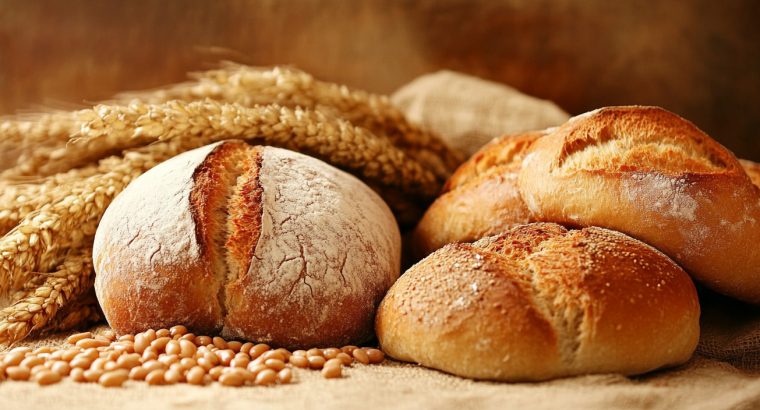Gluten-Free Diets and Diabetes
Gluten-Free Diets and Diabetes: A Comprehensive Guide
In recent years, the world has seen a growing interest in gluten-free diets, largely fueled by the increase in celiac disease diagnoses, personal dietary choices, and the perception of gluten-free as a healthier option. For individuals with diabetes, managing blood glucose levels is a daily challenge that requires careful dietary planning. This article explores the intersection of gluten-free diets and diabetes, examining whether gluten-free living can benefit diabetes management and how to approach this diet effectively.
Understanding Gluten and Gluten-Free Diets
What is Gluten?
Gluten is a protein found in wheat, barley, and rye. It gives dough its elasticity, allowing bread to rise and maintain its shape. For most people, gluten is harmless, but for those with celiac disease or gluten sensitivity, consuming gluten can lead to significant health issues.
What is a Gluten-Free Diet?
A gluten-free diet involves the complete removal of all foods that contain gluten. This includes traditional pasta, bread, cereals, and many processed foods. Instead, gluten-free diets focus on naturally gluten-free foods such as fruits, vegetables, meats, and grains like rice and quinoa.
Diabetes and Dietary Management
Types of Diabetes
- Type 1 Diabetes: An autoimmune condition where the body’s immune system attacks insulin-producing cells.
- Type 2 Diabetes: A chronic condition affecting the way the body processes blood sugar (glucose).
- Gestational Diabetes: Develops during pregnancy and often subsides post-birth but can impact the mother’s and child’s diabetes risk later in life.
Importance of Diet in Diabetes
Diet is crucial in the management of diabetes. It impacts blood glucose control directly and is a core component of diabetes self-management. The typical dietary goals for people with diabetes include maintaining balanced blood sugar levels, achieving a healthy weight, and reducing complications.
The Intersection of Gluten-Free Diets and Diabetes
Potential Benefits
- Improved Digestive Health: For diabetics with celiac disease or gluten sensitivity, a gluten-free diet is essential for preventing symptoms like bloating, diarrhea, and malabsorption of nutrients.
- Blood Sugar Control: Some research suggests that gluten-free diets may influence glycemic control. However, it is essential to note that not all gluten-free foods are lower in carbohydrates or healthier; focus should be on increasing dietary fiber through gluten-free whole grains.
- Reduced Inflammation: Celiac disease is linked to systemic inflammation, which can exacerbate diabetes complications. A gluten-free diet may help to lower such inflammatory responses.
Potential Downsides
- Nutritional Deficiencies: Gluten-free diets can be low in fiber, iron, calcium, and vitamin B12. Those with diabetes need to ensure they are receiving adequate nutrients which are also crucial for blood health and overall wellness.
- Higher Sugar Alternatives: Many gluten-free substitutions for snack foods and desserts have added sugars and refined starches, which can lead to poorer glycemic control if not managed carefully.
- Weight Gain: A gluten-free diet is not automatically lower in calories. Some gluten-free products have higher levels of sugar and fats to improve flavor and texture, which could lead to weight gain and exacerbate diabetes.
Integrating a Gluten-Free Diet for Diabetics
Steps for a Healthy Gluten-Free Diabetic Diet
- Consult Healthcare Providers: Before starting any new diet, consulting with a registered dietitian or a healthcare provider is crucial. They can help create a personalized plan that meets nutritional needs without compromising blood glucose management.
- Focus on Whole Foods: Prioritize natural, gluten-free foods like fresh fruits, vegetables, lean proteins, and gluten-free grains such as quinoa and brown rice that are fiber-rich and help stabilize blood sugar.
- Read Labels Carefully: Gluten-free doesn’t always mean healthy. Be vigilant about reading labels to avoid added sugars and unhealthy fats, and to ensure the product fits within a balanced diabetic diet.
- Meal Planning and Preparation: Planning meals ahead of time can help maintain balanced blood sugar levels and avoid last-minute temptations that might lead to poor dietary choices.
- Monitor Blood Sugar Levels Closely: When transitioning to a gluten-free diet, keeping a closer watch on blood sugar levels can help identify how foods are impacting glucose and make necessary adjustments.
- Educate on Gluten-Free Grains: Include gluten-free grains and starches like amaranth, millet, teff, and sorghum that can provide dietary fiber and other vital nutrients without spiking blood sugar.
Addressing Myths and Misconceptions
Gluten-Free Equals Low-Carb/Weight Loss Diet
A prevalent misconception is that gluten-free diets are inherently low-carb or ideal for weight loss. Instead, it’s essential to understand that gluten-free and low-carb diets differ. While gluten-free living is medically necessary for some, any purported weight loss benefits come from specific food choices rather than gluten elimination alone.
Long-Term Considerations
The long-term management of diabetes with a gluten-free diet requires commitment and vigilance. A balanced approach ensures that nutritional adequacy is maintained without compromising diabetes management goals.
Balancing Lifestyle and Diet
- Social and Emotional Considerations: Dining out and social gatherings can pose challenges. Preparation and clear communication are key to maintaining dietary commitments.
- Regular Updates in Dietary Knowledge: Nutrition science evolves, and keeping informed through health care providers or continuing education can provide the best outcomes.
Concluding Thoughts
Gluten-free diets in the context of diabetes management offer both potential benefits and challenges. It’s essential for individuals to tailor their dietary approaches to their specific needs and goals, under professional guidance. With careful planning, a gluten-free diet can complement diabetes management by supporting optimal health and well-being.
By understanding the interactions between various dietary components and diabetes, those who choose to follow a gluten-free diet can do so with confidence, ensuring their approach is not only safe but beneficial in the long run.

